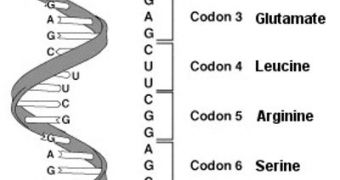A group of scientists was recently able to pin down an extra number of genes, which they say are responsible for increasing people's risk of developing throat cancer (nasopharyngeal carcinoma, or NPC) at one point in their lives. The new data were extracted from a new genome-wide association survey of the condition, and they may give researchers a new tool to work with in developing a new therapy for the condition. The research team was based at the Genome Institute of Singapore (GIS), and at the Sun Yat-Sen University Cancer Center.
The investigation, on which experts from China, the United States and Singapore contributed, determined that the genetic variation recorded in each individual plays an important part in determining the risk that person has for developing NPC. This disease mostly affects the area behind the nose, in the upper part of the throat – the nasopharynx. The carcinoma develops in the epithelial cell layer that lines this region, and the disease has a significant prevalence in regions in southern China. Here, they occur at frequencies 25 times higher than in any other area of the world, and therefore finding solutions or prevention methods is very important.
“Although many groups have attempted to identify the genetic risk factors of NPC, the findings of previous studies were limited by the small number of genes and clinical samples used. Because of this large-scale study of approximately 10,000 subjects in total, we are able to break through with more robust evidence compared to previous studies,” says GIS Human Genetics division associate director and senior group leader Dr Liu Jianjun. He was also the co-lead author of a paper detailing the findings, which was published in the May 30 issue of the esteemed scientific publication Nature.
“This finding confirmed the strong genetic effect of HLA [human leukocyte antigen] locus in the risk of NPC. By using the high density of genetic markers, our finding helps to narrow down the chromosome region to search for the causative gene variant(s) associated with HLA loci. The identification of susceptibility genes involved in the risk of NPC will help to develop a model for risk prediction and then screen for high risk populations, which in turn will be helpful for early diagnosis of NPC,” concludes the president of the Sun Yat-sen University Cancer Center, professor Yi-Xin Zeng. He was the other co-lead author of the Nature paper.

 14 DAY TRIAL //
14 DAY TRIAL //